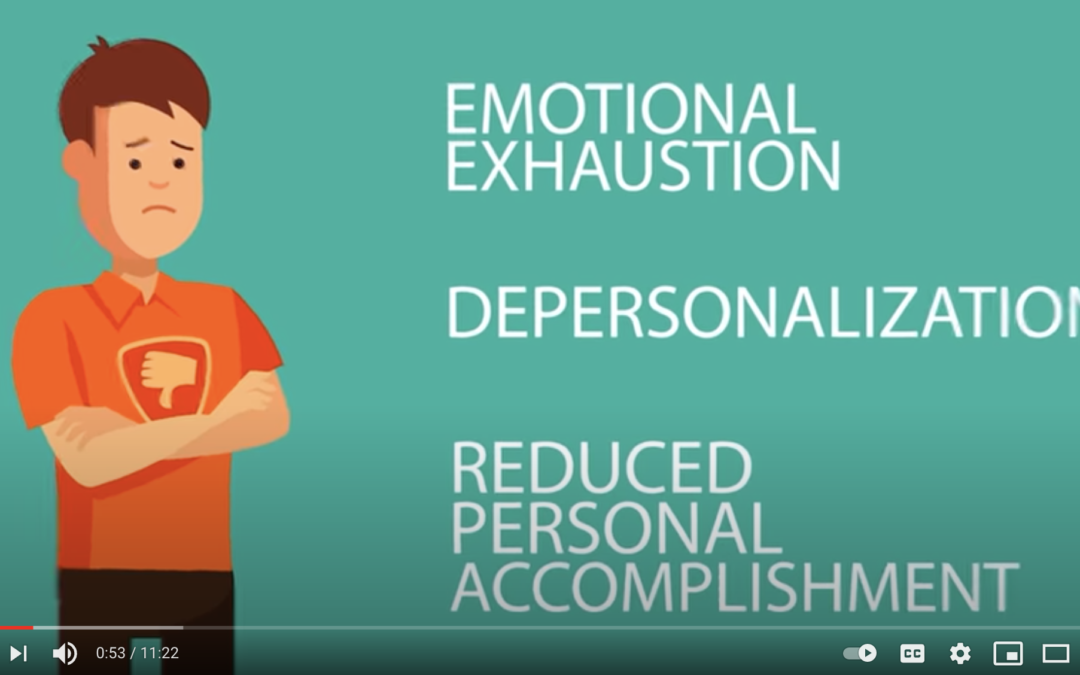Each week, ICBA’s Jordan Bateman reflects on what we’ve learned as we participate in ICBA’s Workplace Wellness Program. This program is free for all ICBA members – check out icba.ca/wellness for details.
We’re on to Month 2 of our Wellness Program, and the theme is depression and anxiety. To start us off, we watched a video from TopThink outlining three components of emotional burnout:
- Emotional exhaustion
- Depersonalization
- Reduced personal accomplishment
In other words, the video says, people can’t give 100% to work or relationships, they start acting like a different person, and they struggle with motivation and self-perception.
I imagine there are many people feeling this way, especially given the COVID-19 isolation we have just come through. We have all been living in a heightened state of anxiousness for a long time, which has significant effects on our ability to process. In doing a little more reading on this, I came across this explanation:
Burnout may be the result of unrelenting stress, but it isn’t the same as too much stress. Stress, by and large, involves too much: too many pressures that demand too much of you physically and mentally. However, stressed people can still imagine that if they can just get everything under control, they’ll feel better.
Burnout, on the other hand, is about not enough. Being burned out means feeling empty and mentally exhausted, devoid of motivation, and beyond caring. People experiencing burnout often don’t see any hope of positive change in their situations. If excessive stress feels like you’re drowning in responsibilities, burnout is a sense of being all dried up.
I’ve never seen it described that way, but it makes sense to me.
ICBA’s Workplace Wellness Program is helping more than 50 companies, and thousands of construction professionals, better understand mental health. The program is free for ICBA members — see icba.ca/wellness.

